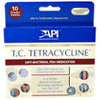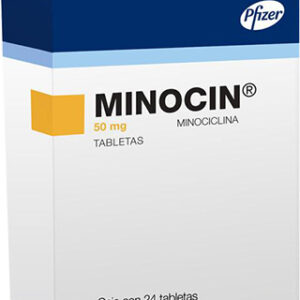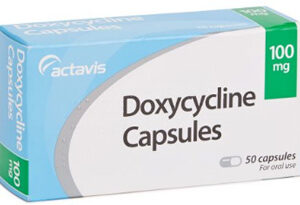Overview of Tetracycline
Tetracycline is part of a class of broad-spectrum antibiotics known for their capacity to impede the proliferation of a variety of microorganisms. As an older antibiotic, it is often used when other, possibly more contemporary medications, are ineffective or contraindicated. Tetracycline operates by hindering the ability of bacteria to produce essential proteins, thus thwarting their growth and allowing the immune system to combat the infection more effectively.
Indications for Use
The antibiotic is frequently prescribed for a multitude of bacterial infections. Such conditions may include but are not limited to, respiratory tract infections, acne, urinary tract infections, gonorrhea, chlamydia, and periodontitis. Additionally, tetracycline is sometimes used for the treatment of infections caused by rickettsiae, such as Rocky Mountain spotted fever or typhus fever.
Usage and Dosage Guidelines
Correct dosage of tetracycline is contingent upon the specific condition being treated, the severity of the infection, and the patient’s overall health profile. It is normally consumed orally, with a glass of water, and can be taken with or without food. However, it is recommended to avoid dairy products close to the dosage time as they can interfere with the body’s ability to absorb the medication. The dosage may vary greatly from 250mg to 500mg, taken several times daily.
Precautions and Warnings
While on tetracycline, exposure to sunlight or ultraviolet light should be minimized due to the increased susceptibility to sunburn. Individuals with kidney disease, liver disease, or a history of yeast infections should discuss these conditions with a healthcare professional before initiating treatment. Furthermore, tetracycline may affect fetal development and is thus not recommended for use during pregnancy. Additionally, this medication can pass into breast milk and may have undesirable effects on a nursing infant.
Potential Side Effects
Patients may experience a range of adverse reactions while on tetracycline therapy. Commonly reported side effects are nausea, vomiting, diarrhea, and loss of appetite. Some individuals may notice swelling of the tongue, discoloration of teeth, and increased sensitivity to sunlight. On rarer occasions, more severe consequences may manifest, such as changes in vision, severe headaches, or an irregular heartbeat. Immediate medical attention should be sought in the presence of such symptoms.
Drug Interactions
Tetracycline’s therapeutic efficacy can be compromised when taken alongside certain drugs. Notably, isotretinoin, retinoids, antacids containing aluminum, calcium, or magnesium, and iron supplements may notably impact its absorption. Concomitant use with penicillin can be antagonistic, diminishing the effectiveness of both antibiotics. Additionally, blood thinners and tetracycline have a known interaction, making vigilant monitoring of prothrombin times vital.
Contraindications
Tetracycline therapy is contraindicated in children below 8 years of age due to the potential for permanent discoloration of teeth and delayed bone growth. Patients with known hypersensitivity to the tetracycline class should not be prescribed this antibiotic. Moreover, it should be used with caution or avoided in individuals with severe liver impairment or those with kidney dysfunction.
Overdose and Emergency Measures
An overdose of tetracycline may result in an exacerbation of its typical side effects. Significant overdosage can induce renal toxicity and should be addressed promptly. Supportive measures undertaken in an emergency scenario may include gastric lavage and administration of antacids to prevent further absorption. Renal function should be closely monitored, and medical care should be engaged without delay.
Storage and Handling Recommendations
To preserve efficacy and safety, tetracycline should be stored at room temperature, away from light and moisture. Thereby, it should not be stored in bathrooms or areas prone to dampness. Medications should be kept out of reach of children and pets to prevent accidental ingestion. It is vital to dispose of expired or no longer needed medications properly, in accordance with local regulations.
FAQs about Tetracycline
Is it safe to consume alcohol while taking tetracycline?
While alcohol may not directly interact with tetracycline, it is advisable to avoid or limit alcohol intake as it can exacerbate side effects such as nausea and upset stomach.
Can tetracycline affect birth control?
Yes, it may diminish the effectiveness of oral contraceptives. Additional birth control methods should be considered while undergoing tetracycline therapy.
How quickly does tetracycline work for infections?
Improvements may be noticed within a couple of days; however, it’s critical to continue the full prescribed course to completely eradicate the infection and prevent resistance.
Is it possible to take tetracycline long-term for acne?
For chronic conditions such as acne, tetracycline might be used for an extended duration under medical supervision to manage the symptoms effectively.
Why must dairy products be avoided when taking tetracycline?
Calcium found in dairy products can bind to tetracycline and interfere with its absorption, potentially decreasing the antibiotic’s efficacy.





Reviews
There are no reviews yet.